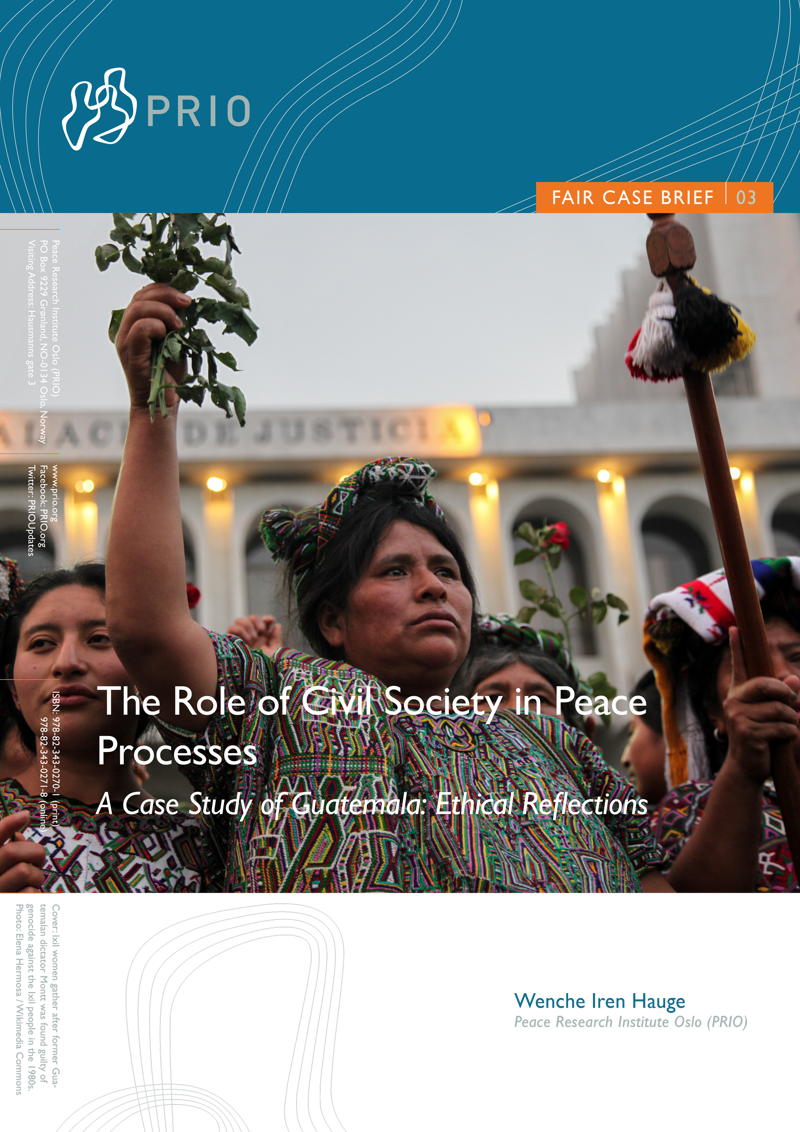
The new case brief by Wenche Iren Hauge examines the Guatemalan peace process from 1990 to 1996 as an early example of the inclusion of civil society in a negotiation process.
The Guatemalan case is an important illustration of the challenge in having to prioritize between different norms in a peace process – and in this case, ending violence came before important implications of inclusivity on other issues on the negotiation agenda.
In the Guatemalan case, civil society had an influence on the negotiations between the government and the Guatemalan National Revolutionary Unity (URNG), but on some sensitive and critical issues civil society was prevented from exerting pressure on the parties. This case brief looks at the ethical implications of this situation.
This case brief is a part of the FAIR project which is the first systematic investigation of ethical problems and solutions in peace negotiations and peace mediation. The project engages with existing debates on norms in peace negotiations and explores relevant philosophical perspectives.





